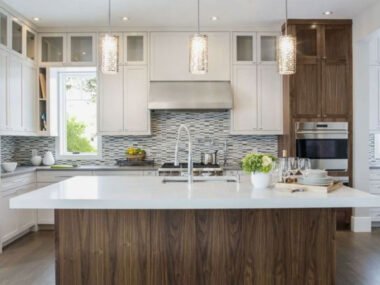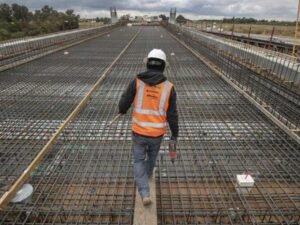Thinking of tearing out those dated cabinets and finally upgrading your kitchen? It’s tempting to jump straight to choosing colours and tiles, but a renovation is more than just picking finishes. There are a few steps most people overlook in the excitement, and skipping them can lead to expensive regrets.
Here’s a look at the often-missed (but seriously helpful) things you should do before you commit to your kitchen overhaul.
1. Cook a Full Week of Meals in Your Current Setup
This might sound strange. Why spend more time in a kitchen you hate? But there’s a reason for it.
When you force yourself to cook as you normally would for seven full days, you quickly notice what works and what doesn’t. Are the appliances too far apart? Is there enough bench space when prepping multiple dishes? Does the layout make you walk in circles?
Write down every frustration, no matter how small. These notes can shape your new kitchen in a way that actually fits your lifestyle. Too many people build based on trends or aesthetics, only to realise later that nothing flows quite right. A week of observation gives you a clearer picture of what truly needs changing.
2. Visit a Showroom
Showrooms are one of the most undervalued steps in planning a kitchen renovation. Yes, even if you’re choosing a DIY flat pack or working with a budget.
Seeing things in person at a kitchen showroom makes a huge difference. Measurements on paper don’t give you the same sense of scale as walking through a space and interacting with cabinetry, handles, and appliances. Colours look different under lights, and the way drawers slide or cupboards open might change your mind entirely about certain materials or layouts.
Even a quick visit can spark ideas you hadn’t considered, and more importantly, help you avoid costly changes mid-way through. Trust your eyes and hands. They’ll often catch things your screen won’t.
3. Map Your Daily Routines
Think about your morning. Do you make a smoothie? Brew coffee while packing lunches? Where do those items live, and how easily can you get to them?
A great kitchen isn’t just beautiful, it supports your daily habits. Before you even draw up a layout or think about finishes, break down what your family actually does in the kitchen, hour by hour.
This includes:
How many people cook at once?
Do you entertain often?
Where do kids do homework or grab snacks?
Is there a specific time when the space feels cramped?
Mapping these routines helps you prioritise zones. For example, you might realise you need more prep space and less open shelving. Or that a larger fridge is essential, even if it means compromising on pantry size.
4. Think Beyond Storage (Yes, Really)
Storage is a big focus during renovations, and rightly so. But people often fall into the trap of just adding more cupboards and drawers, without asking if they’re actually useful.
Ask yourself:
Do you really need a full wall of cabinets, or would open space make the room feel better?
Could one larger pantry replace three smaller ones?
Are you storing things you haven’t used in years?
This is the time to edit. Decluttering before planning gives you a more accurate idea of what needs to be stored, and it often results in smarter, more intentional design choices. Function matters more than volume. Ten well-designed drawers are better than twenty shallow, awkward ones.
5. Get Clear on the Non-Negotiables
When people skip this step, renovations can become stressful fast. Budgets blow out. Timelines stretch. Everyone gets frustrated.
Before you start talking to trades or looking at products, decide what absolutely matters most to you. Is it having a stone benchtop? Keeping your existing flooring? Staying under a certain spend? Making room for a dishwasher?
Write down your top 3 non-negotiables. These are the things you won’t compromise on. Everything else becomes more flexible.
This makes decisions easier down the track, especially when unexpected costs come up. You’ll already know where you’re willing to adjust, and where you’re not.
6. Chat With Someone Who’s Done It (Recently)
Not an architect. Not a builder. Not someone who did it 15 years ago. Find someone you know who’s renovated their kitchen in the past 12 to 18 months and ask them what they wish they’d done differently.
You’ll probably hear things like:
- “We didn’t allow enough room around the island.”
- “I regret not adding more power points.”
- “The lighting looks good but doesn’t work for actual cooking.”
These are the kinds of details that often get missed in planning because they’re not obvious until you live in the space. A casual chat over coffee could save you a costly mistake. Most people are happy to share what they learned.
Before You Pick Up That Sledgehammer…
Kitchens are high-impact renovations, but they also come with a high chance of overwhelm if you rush in. Slowing down and doing a few unexpected things before you get started can make the process smoother, smarter, and a whole lot less stressful.
You’re not just building a kitchen. You’re shaping a space you’ll use every single day. So plan like it matters, because it does.










